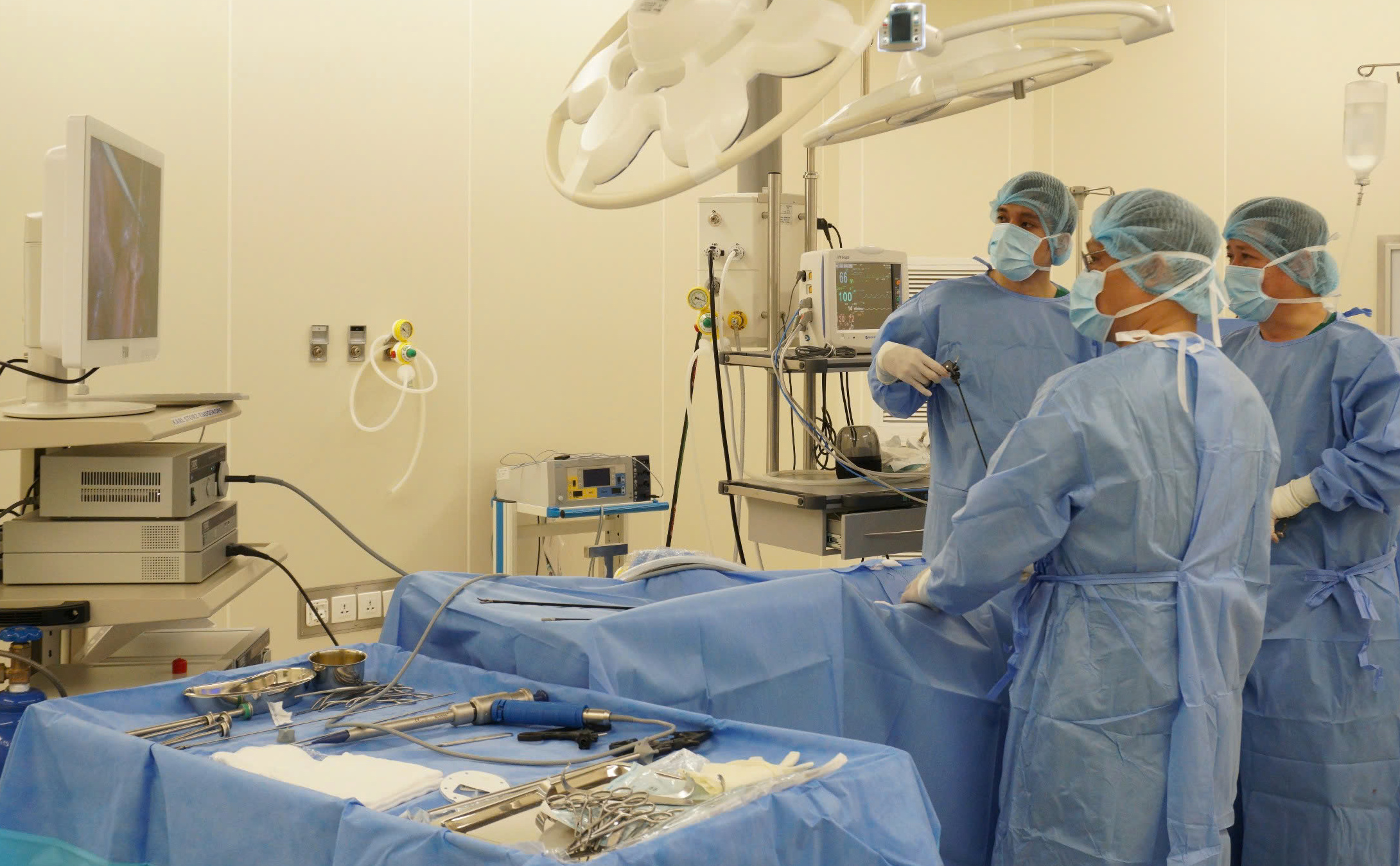The patient had planned to have surgery in 2022 to end her prolonged reliance on hormone therapy and the constant worry of complications. However, just before the scheduled procedure, doctors discovered she had a pneumothorax (collapsed lung). General anesthesia posed a significant risk to her life, forcing the cancellation of the surgery. Three years later, determined to stop medication and escape the shadow of her illness, she returned to Phuong Nam Hospital.
On 17/9, Dr. Van Phung Thong, Medical Director of Obstetrics and Gynecology at Phuong Nam Hospital, explained that after consultation, the medical team opted for local anesthesia instead of general anesthesia. The patient remained conscious throughout the operation, enabling her to cooperate with the surgeons. This approach allowed for immediate intervention if any respiratory issues arose.
Abdominal surgeries typically require general anesthesia to ensure patient comfort and facilitate surgical maneuvers. However, given the patient's pneumothorax, general anesthesia presented substantial risks, necessitating the use of local anesthesia. This choice brought new challenges: difficulty in achieving complete pain control, potential patient discomfort and anxiety, and increased bowel movement obstructing the surgical field.
To ensure safety, the doctors prepared various contingency plans, including pain management, psychological support, and protocols for handling potential complications. As a result, the surgery was successful. The patient recovered well and is no longer dependent on hormone therapy.
"The moment I heard the doctor say the surgery was over, I was relieved to know I was alive," the patient shared. "During the operation, I focused on breathing deeply and evenly to ensure sufficient oxygen intake and prevent another pneumothorax," she added.
 |
Doctors perform laparoscopic surgery on the patient. Photo: Hospital provided |
Doctors perform laparoscopic surgery on the patient. Photo: Hospital provided
Endometriosis is a common gynecological condition affecting women of reproductive age. It occurs when endometrial cells (the lining of the uterus) grow outside the uterine cavity, such as on the ovaries, uterine ligaments, or pelvic walls. The exact cause remains unknown, but potential factors include retrograde menstruation (where menstrual blood flows back into the pelvic cavity), immune system disorders, genetic predisposition, or hormonal imbalances that stimulate the growth of displaced endometrial tissue.
The condition can be asymptomatic or manifest with severe menstrual cramps, prolonged pain, pelvic pain, pain during intercourse, heavy menstrual bleeding, and difficulty conceiving. Some individuals also experience digestive or urinary problems during their period.
Treatment options include pain relievers, hormone therapy, or surgery when medication is ineffective, pain is severe, large ovarian cysts are present, or assistance with fertility is needed. Long-term hormone therapy requires careful monitoring due to potential side effects like osteoporosis, weight gain, mood changes, and metabolic disturbances.
Doctors recommend women have regular gynecological checkups every 6 months, especially if they experience any unusual symptoms. Maintaining a healthy lifestyle, a balanced diet, and regular exercise is also crucial. Women should not self-medicate without a doctor's prescription. Adolescents experiencing painful periods should seek medical attention promptly.
"Endometriosis is not cancer, but if left untreated, it can lead to complications affecting reproductive health and quality of life," Dr. Thong stated.
Le Phuong












